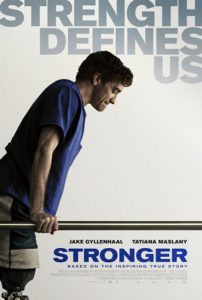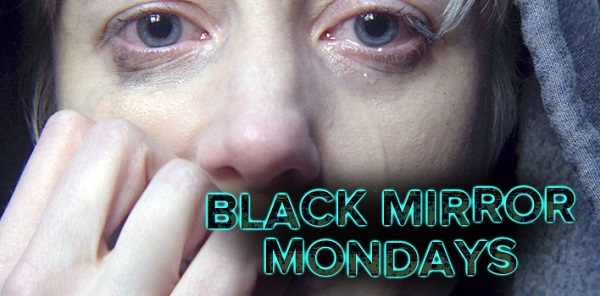 Movies about persons with disabilities are a curious beast. They have a tightrope to walk. Disability is a difficult thing to deal with and often manifests itself in painful, isolating ways. However, this makes it easy to fall into the trap of turning a person with a disability into an object of pity (The Elephant Man). Or you can go the Forrest Gump route and objectify a person with disability as a “stupid saintly savant”. And then there are those films that seem dangerously close to advocating suicide (Me Before You, Million Dollar Baby). Unfortunately, I suspect most movies about persons with disability are not made by persons with disability, nor do disabled actors often play disabled characters. I find it frustrating that this is a voice that we don’t get to hear from very much.
Movies about persons with disabilities are a curious beast. They have a tightrope to walk. Disability is a difficult thing to deal with and often manifests itself in painful, isolating ways. However, this makes it easy to fall into the trap of turning a person with a disability into an object of pity (The Elephant Man). Or you can go the Forrest Gump route and objectify a person with disability as a “stupid saintly savant”. And then there are those films that seem dangerously close to advocating suicide (Me Before You, Million Dollar Baby). Unfortunately, I suspect most movies about persons with disability are not made by persons with disability, nor do disabled actors often play disabled characters. I find it frustrating that this is a voice that we don’t get to hear from very much.
You’ve probably deduced that this is something of a personal issue for me. I have a brittle bone condition, I know what it’s like to use a wheelchair for mobility and depend on others for help. And, when I’m not rambling about movies for you good people, my job is developing a ministry for persons with disabilities for my church; so you can probably tell that I have a bad case of opinions about this subject. As such, I feel it is only fair to warn you, this is going to be less of a review and more of a “using a movie to make a point” type of article. I apologize for toe-stepping in advance, but isn’t the whole point of RWT to use entertainment as a means of starting thoughtful conversations?
 Jake Gyllenhaal (Nightcrawler, Donnie Darko) stars as Jeff Bauman, a slacker Bostonian who, in an attempt to win back his ex-ladyfriend Erin, played by Tatiana Maslany (Orphan Black), is caught in the bomb blast at the 2013 Boston Marathon where he loses both his legs. Struggles to adapt to his new condition and heal from PTSD ensue. Both Gyllenhaal and Maslany give heart-wrenching performances. I appreciated how Bauman is portrayed as a real person and not some kind of wounded saint. He’s kind of a jerk for much of the movie.
Jake Gyllenhaal (Nightcrawler, Donnie Darko) stars as Jeff Bauman, a slacker Bostonian who, in an attempt to win back his ex-ladyfriend Erin, played by Tatiana Maslany (Orphan Black), is caught in the bomb blast at the 2013 Boston Marathon where he loses both his legs. Struggles to adapt to his new condition and heal from PTSD ensue. Both Gyllenhaal and Maslany give heart-wrenching performances. I appreciated how Bauman is portrayed as a real person and not some kind of wounded saint. He’s kind of a jerk for much of the movie.
Stronger is a well-made, well-acted movie that is fairly predictable, based on the premise alone you can take a pretty good guess at how the movie is going to end. …Yep, you’re right, it does exactly that. Despite this, I believe that this movie does offer an opportunity for some healthy reflection for the viewer regarding how we interpret it. Jeff Bauman’s story is inspiring, but why? Are we inspired because he “beat” his disability? Or is it because he embraces and finds strength in his weakness? For that matter, what is strength? At one point, as he begins to better manage his new life Jeff says he wants to “return to normal,” how do we interpret that? Does he mean accepting his new condition or being like he was physically pre-bombing? What is the purpose of having a disability?
 I believe there are right and wrong ways to deal with suffering. Losing your legs is a very painful experience, I suspect, and adjusting to it must be among the more difficult things to do, the movie does not shy away from this. Jeff has to learn to take care of himself, and care for others rather than being solely a receiver of care. It’s not fair to ungratefully take when you do have some capacity to contribute. Suffering in the face of adversity is inspiring. Denying that weakness is present is an illusion. I suspect that we often view “beating” a disability as overcoming the ways it limits us. But rather, I think it is more so, coming to accept that weakness and pain are unavoidable, maybe even good things. Jesus comes to join us in our suffering, not necessarily to nullify it. When Jeff accepts his newfound status he is able to empathize with others in ways that he was unable to before. There is a sense in which disability helps us to better live into our own human vulnerability, which is a good thing.
I believe there are right and wrong ways to deal with suffering. Losing your legs is a very painful experience, I suspect, and adjusting to it must be among the more difficult things to do, the movie does not shy away from this. Jeff has to learn to take care of himself, and care for others rather than being solely a receiver of care. It’s not fair to ungratefully take when you do have some capacity to contribute. Suffering in the face of adversity is inspiring. Denying that weakness is present is an illusion. I suspect that we often view “beating” a disability as overcoming the ways it limits us. But rather, I think it is more so, coming to accept that weakness and pain are unavoidable, maybe even good things. Jesus comes to join us in our suffering, not necessarily to nullify it. When Jeff accepts his newfound status he is able to empathize with others in ways that he was unable to before. There is a sense in which disability helps us to better live into our own human vulnerability, which is a good thing.
Quite the can-of-worms we’ve opened up here. But it is nowhere near exhaustive. Let me know if you catch any good thoughts with them.


